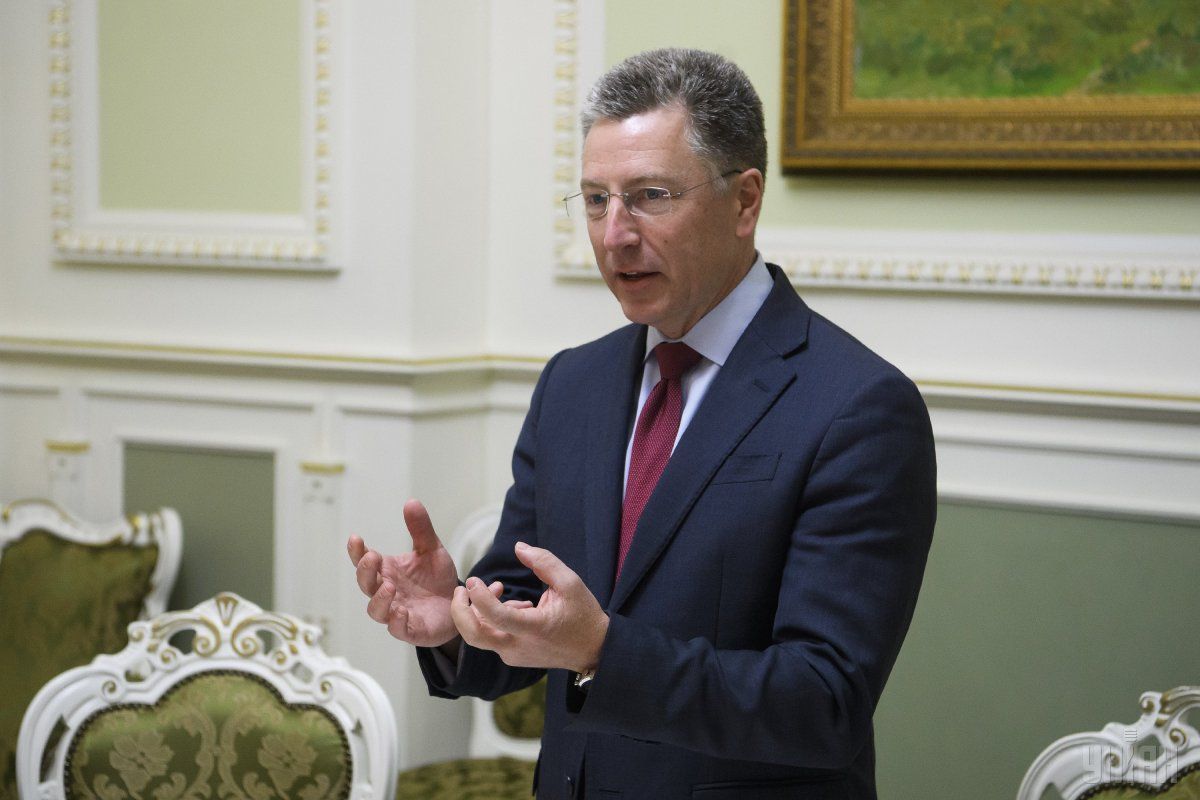
Kurt Volker also confirmed to the Financial Times that the U.S. administration was "seriously considering" whether to change its position and deliver lethal weapons to Ukraine.
His comments in Kyiv came after Jim Mattis, U.S. defense secretary, last week spoke in favor of arming Ukraine as he stood alongside President Petro Poroshenko on the 26th anniversary of the country's independence from the Soviet Union.
"The relationship between Russia and the U.S. is important, and it's going to be crippled by this problem in Ukraine," Mr. Volker said.
He warned that Russia was "going to have to make some fundamental decisions" on whether to comply with the Minsk accord aimed at bringing peace to east Ukraine and pull its forces out of the region.
Washington was also considering whether to provide the defensive weapons that Ukraine has long requested to help deter and protect itself against further Russian aggression, something former U.S. president Barack Obama opposed.
"[What] the Trump administration now is looking at [is] do we continue this rejection from the Obama administration, or do we change? There isn't any new decision yet, but at very senior levels people are taking that very seriously," Mr. Volker said. "Of course, it has to be a decision from the president."
Mr. Volker's comments will not be welcomed in Moscow, which believed Mr. Trump's election last year could bring an improvement in relations with Washington.
The Kremlin had hoped the Trump administration would take a more accommodating stance over Ukraine or put the issue on the backburner.
Instead, Mr. Volker said Washington was concerned that Ukraine had "slipped off the front pages" and the Trump administration – along with Germany and the Macron administration in Paris – was "raising the issue back up".
"[There] is perhaps a growing sense that the conflict itself is actually getting worse and that it is going to continue to get worse unless we do something," he said.
Mr. Volker, the director of the McCain Institute think-tank and a former U.S. ambassador to NATO, was mandated last month to support European leaders in talks with Moscow on the fighting that has killed 10,000 in Ukraine's east.
Days after his first meeting with Vladislav Surkov, the Kremlin's Ukraine envoy, Mr. Volker said Russia seemed prepared to "live with" the status quo of a still-smoldering conflict.
Read alsoMattis brings military equipment for Ukrainian army – Volker"But at the same time I don't think it's working out very well for them," he said. "There is a cost to Russia internationally being in Donbas [eastern Ukraine], the sanctions as well as politically. And frankly, that situation is going to get worse over time, not better.
"A situation where Russia is going to be frozen out of diplomatic relationships, of economic relationships, because of this, is certainly not something that Russia would want. I think they have got to make their own choice, their own calculations."
Mr. Volker is a central figure in relations with Moscow in an administration dominated by Russia hawks following the ousting of officials viewed as more conciliatory to the Kremlin, including former national security adviser General Michael Flynn, and ex-chief strategist Steve Bannon.
The U.S. Congress recently tightened sanctions on Russia in response to Moscow's alleged interference in last year's U.S. election and made it impossible for the president to remove sanctions imposed over Ukraine without congressional approval. Mr. Volker said sanctions linked to Russia's 2014 annexation of Crimea would remain until Moscow returned the peninsula to Ukraine.
Moscow was "probably surprised" at both Ukraine's resolve and transatlantic unity on sanctions, he added, and had been "wanting to test, to see how solid this is" after the election of Mr. Trump and his French counterpart Emmanuel Macron. "But things haven't moved... they are going to have to take that into account," he said.
Mr. Volker described what he saw on a recent frontline visit to east Ukraine as a "hot war", where separatist forces "under Russian command and control" routinely fire upon and obstruct ceasefire monitors.
Citing discussions with Ukrainian, European and Russian officials, he said all agreed that the Minsk process was "not going anywhere". The U.S. was trying to "give an impetus to the process", he said.
But he put the onus for breaking the deadlock on Moscow, adding: "Russia has forces in eastern Ukraine and it needs to pull them out."

